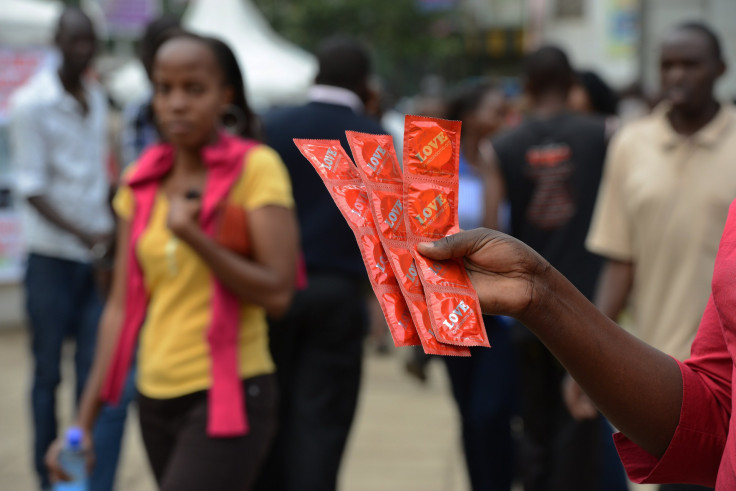Safe Sex In South Africa: Free Scented Condoms Distributed In New Anti-HIV Campaign

As part of its newly launched safe sex campaign, the South African Department of Health plans to distribute 3 billion scented male condoms, 54 million female condoms and 60 million lubricant packets during the next three years. The rebranded condoms and lube will be dispensed to 4,000 sites nationwide and will cost South African taxpayers 3.5 billion rand, or $279 million, according to independent news source the Conversation.
The South African health department has redesigned its safe sex campaign in an effort to meet its targeted goal of slashing in half HIV/ADS, tuberculosis and STD infections by 2016. South Africa has one of the world’s target goal of slashing in half HIV/ADS, tuberculosis and STD infections by 2016. South Africa has one of the world’s highest incidences of HIV. The country has seen an increase in HIV infections among young adults over the past few years, as well as a decrease in condom use across all age groups.
Giving out free condoms in South Africa is nothing new, but the government was hoping to attract students and youth across the country with the rebranded condoms, which now come in different colors and scents. South African youth have often viewed the standard contraception as unappealing, and the health department’s free condom campaign was vilified in 2007 when millions of government-supplied free condoms were deemed decrease in condom use across all age groups.
Free condoms in South Africa is nothing new but the government is hoping to attract students and youth across the country with the rebranded condoms, which now come in different colors and scents. South African youth often viewed the standard rubbers as unappealing, and the health department’s free condom campaign was smeared in 2007 when millions of government-supplied free condoms were deemed defective, according to Erica Penfold, a research fellow at the South African Institute of International Affairs.
“This legacy could compromise the effectiveness of the new condom campaign. Young people who are aware of the recall may not want to use even the rebranded free condoms, foregoing safe sex for unprotected sex in the belief that the condoms may not work anyway,” Penfold wrote Tuesday in an op-ed for the Conversation. “Will it work? Only time will tell.”
Sub-Saharan Africa, which includes South Africa and every other country south of the Sahara Desert, has the most severe HIV-AIDS epidemic in the world. More than two-thirds or 70 percent of all people living with the illness live in sub-Saharan Africa, including 88 percent of the world's HIV-positive children, according to amfAR, The Foundation for AIDS Research.
In March, South Africa’s health minister Aaron Motsoaledi announced the government would hand out 50 million multi-scented condoms which were brightly colored and available in strawberry, grape and banana. “I hope that you find this condom more appealing and will use them,” Motsoaledi said in a speech in Cape Town, according to local News24.
© Copyright IBTimes 2024. All rights reserved.





















